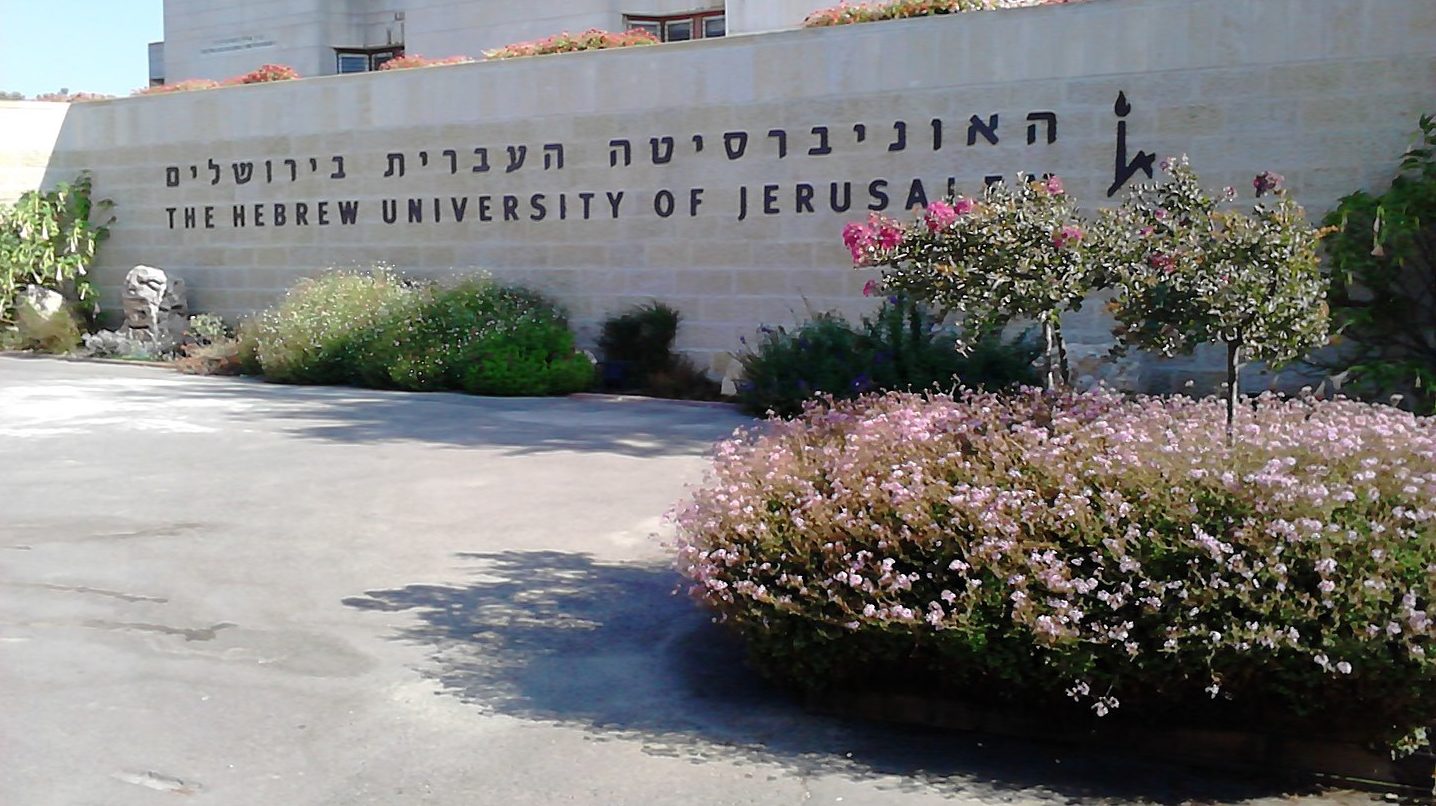College Students Wary as Numbers of Weapons on Campuses Rise
The Israel-Hamas war has led to a surge in the number of Israeli students carrying firearms on campuses, and while some say this makes them feel safer, others say it has the opposite effect
College and university students recently returned to campuses across Israel after the academic year, delayed by the outbreak of the Israel-Hamas war on Oct. 7, finally opened.
But although classes are back in session, all is not back to normal. Many of the students on campus are serving in or eligible for military reserve duty and hold firearms permits, leading to a noticeable increase in the number of students carrying weapons on campuses.
The Media Line contacted several universities to discuss the issue, but they declined to comment.
A student movement called Standing Together organized a protest outside Tel Aviv University to highlight its concerns about weapons on campuses. The protesters encouraged students to sign a petition that they said aimed to ensure the security, safety and well-being of students.
“We asked the student body what is the most important issue that you would like us to address, and we received responses from Jews, even more than from Arabs, that a lot more weapons are being carried around on campus,” Shahar Shillo, a 24-year-old law student at Tel Aviv University and a Standing Together organizer, told The Media Line.
“Everyone in their right mind can understand that it’s a scary thing; it is not only about the sense of security, but it’s actually dangerous, especially with approval from academia,” Shillo said.
After Hamas attacked Israel on Oct. 7 and the war began, National Security Minister Itamar Ben Gvir said he wanted as many civilians as possible to arm themselves, and directed his ministry to ease eligibility requirements for firearms licenses. One measure he took was to reduce the age and shorten the length of time required to have been served in the military for applicants to be allowed to obtain a firearms permit. This allows men over the age of 21 who have served one year in a combat role or two years in general military service to obtain a firearms permit. Women are eligible after one year of national service or if they live or work in an area designated as dangerous.
In addition, civilians with recently expired permits who had not purchased a weapon while their permit was still valid were allowed to purchase one without having to renew their permit, and people who had turned in weapons after not undergoing the required renewal training were allowed to reclaim their weapons without doing the training. Further, new permit holders were allowed to purchase 100 bullets instead of the previous limit of 50. By the beginning of December, more than 260,000 new requests for firearm permits had been submitted to the ministry.
Daniel, a 24-year-old Israeli statistics and economics student serving in the reserves, told The Media Line that while he is obligated always to carry his weapon, he needs to show proof that he is in the military to the security guards at the campus gates.
“You need to have proof that you’re in the reserves, and if you’re in the reserves and you carry a weapon, then you have a license from the army. When you go in, you show security proof of serving in the reserves and your student card just to prove that they correlate,” he said.
A soldier who wished to remain anonymous told The Media Line that whether or not he was serving in the army, he would still opt to have a gun for personal safety.
“I live in Gush Etzion, near where a lot of terrorists live, so, yes, I would still buy a gun just to feel safer,” he said.
With the increase of weapons on campus, I don’t sense the typical atmosphere of a university. Instead, it feels as if I’m on a military base, amid a battlefield.
The Standing Together movement, however, issued a letter expressing its belief that the proliferation of weapons on campuses does not enhance security; instead, it has the opposite effect of increasing anxiety and fear among students.
Arab students told The Media Line they felt unsafe and fearful due to the increased visibility of weapons on campus.
“With the increase of weapons on campus, I don’t sense the typical atmosphere of a university. Instead, it feels as if I’m on a military base, amid a battlefield,” said Motaz, a 24-year-old Arab student at the Hebrew University of Jerusalem.
Khaled, a 21-year-old Arab student, told The Media Line that he prefers attending classes via Zoom from the library rather than sitting in a classroom next to someone carrying a weapon.
“I don’t go to my classes, and even if I do, I’ll sit all the way in the back, but it’s ever so rare when I physically go to class. All it takes is one bullet, and one wrong thing said, for something bad to happen, and I am not risking it,” he said.
Shillo told The Media Line that she and other individuals at the protest did not want weapons on campuses.
“As a Jewish Israeli myself, I too feel scared seeing these weapons. We tell these people carrying weapons that, hey, maybe you feel secure when you carry this, but we don’t feel secure, so maybe you can show empathy towards us,” she said.
Lana Ikelan is a recent graduate of the Hebrew University of Jerusalem and an intern in The Media Line’s Press and Policy Student Program.


